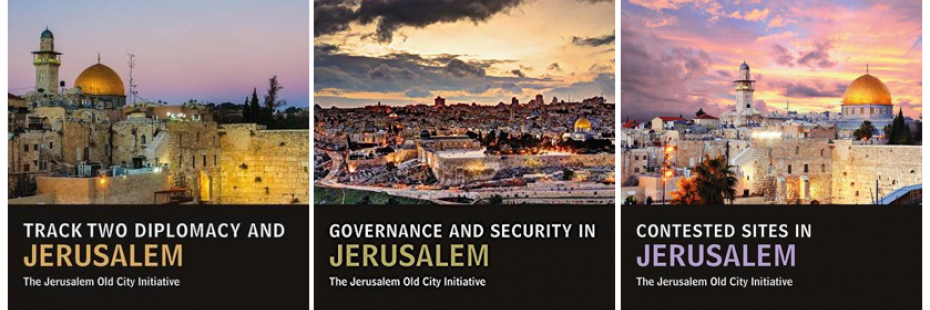Mission Statement:
The Jerusalem Old City Initiative is a major Canadian Track Two led approach that was undertaken in 2003 and continues to present day. The purpose is to find sustainable governance solutions for the Old City of Jerusalem, arguably one of the most sensitive and intractable of the final status issues dividing Palestinians and Israelis. The powerful symbolic and emotional attachment which these two peoples have for the Old City and its holy sites required careful preparatory work and discussion in order to create possible paths to a just and lasting peace. In encouraging dialogue and academic discussions on key issues that are critical to national and religious aspirations of all involved parties, a foundation was established on which further political negotiations can be based. Working with Israeli, Palestinian and international civil society partners, JOCI is providing leadership and coordination in developing and implementing research, dialogue, advocacy, and policy option identification relating to the critical issues that affect a settlement over the Old City.
Home:
The Initiative is housed at the Department of Political Science, University of Windsor, Canada. The Department of Political Science is also the repository of the JOCI documents that have been compiled throughout the years. This latest phase of the initiative is being undertaken in partnership with the UK based Conciliators Guild (https://www.conciliators-guild.org/).
Funding:
The Jerusalem Old City Initiative has been funded primarily by grants from Global Affairs Canada (formerly DFAIT), the Canadian International Development Agency (CIDA), the International Development Research Centre (IDRC), and the University of Windsor. Additional support has been provided by the Conciliators Guild in Oxford, and over the years, the Toledo International Centre for Peace in Madrid, Centre for International Governance Innovation (CIGI), the Woodrow Wilson School for International and Public Affairs at Princeton University, and the Search for Common Ground.
Background:
Phase I (2003-2005):
Phase one took place between 2003 and 2005, consisted of identifying the needs of stakeholders (symbolic, religious, security, economic, political, and social), and posited a set of alternatives to meet them. This phase consisted of research, network building, and conceptualization. This early work resulted in the publication of a discussion document entitled New Directions for Deliberation and Dialogue published in 2005 by the Munk Centre for International Studies at the University of Toronto. That month there was a major conference involving Israeli, Palestinian, and international experts in Istanbul. The conclusion was through wide agreement that a model of a Special Regime should merit further development that be held in the context of a Track Two framework.
Phase II (2006-2010):
Phase two of the Initiative took place between 2006 and 2010 and consisted of the detailed development of the Special Regime governance model. JOCI then formalized into a Track Two initiative, establishing an academic and administrative home in the Department of Political Science at the University of Windsor. Working groups were established consisting of a careful balance of Palestinian, Israeli, and international specialists tasked with developing the specificities of a Special Regime governance model. These working groups consisted of a Security Working Group and a Governance Working Group. Out of phase two came three key documents which formed the basis of the Special Regime governance model (of which, all are presented in the published volumes of the JOCI literature in their entirety).
Phase III (2010-2018):
The culmination of phase two was presented in 2010 at the Mayflower Hotel in Washington, D.C., co-sponsored by the Middle East Institute. The Washington event initiated the third and final phase of the Jerusalem Old City Initiative. The main feature of the third phase is primarily advocacy, but also saw the continuing work on three critical issues (property, archaeology, and economic implications), and led to the publication of three in-depth studies.
The next logical progression was to disseminate the work generated over the decade to a wider audience.
Phase IV (2024):
We will now aim to evolve this initiative and explore new ideas to match the realities that have ensued since the project began over two decades ago.

